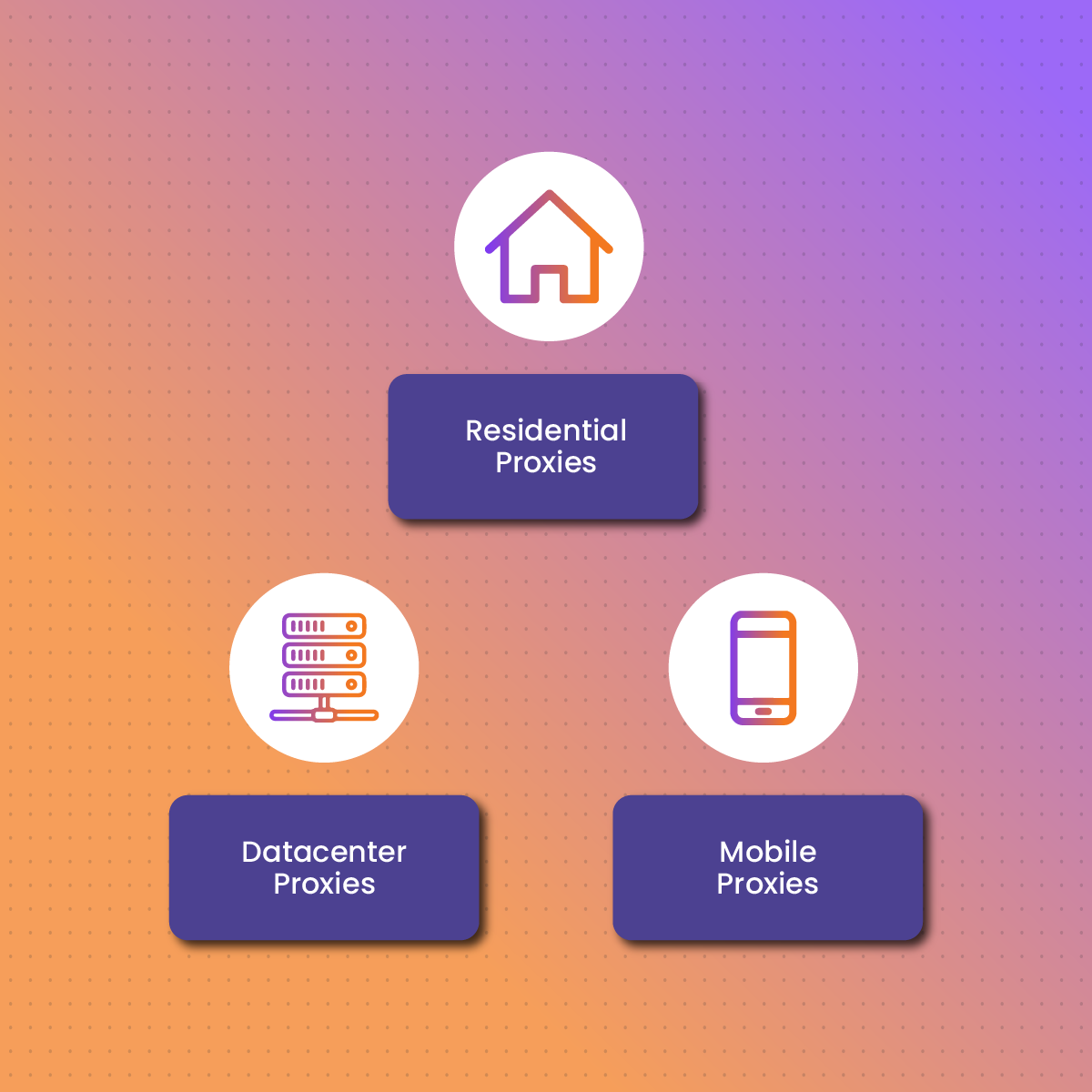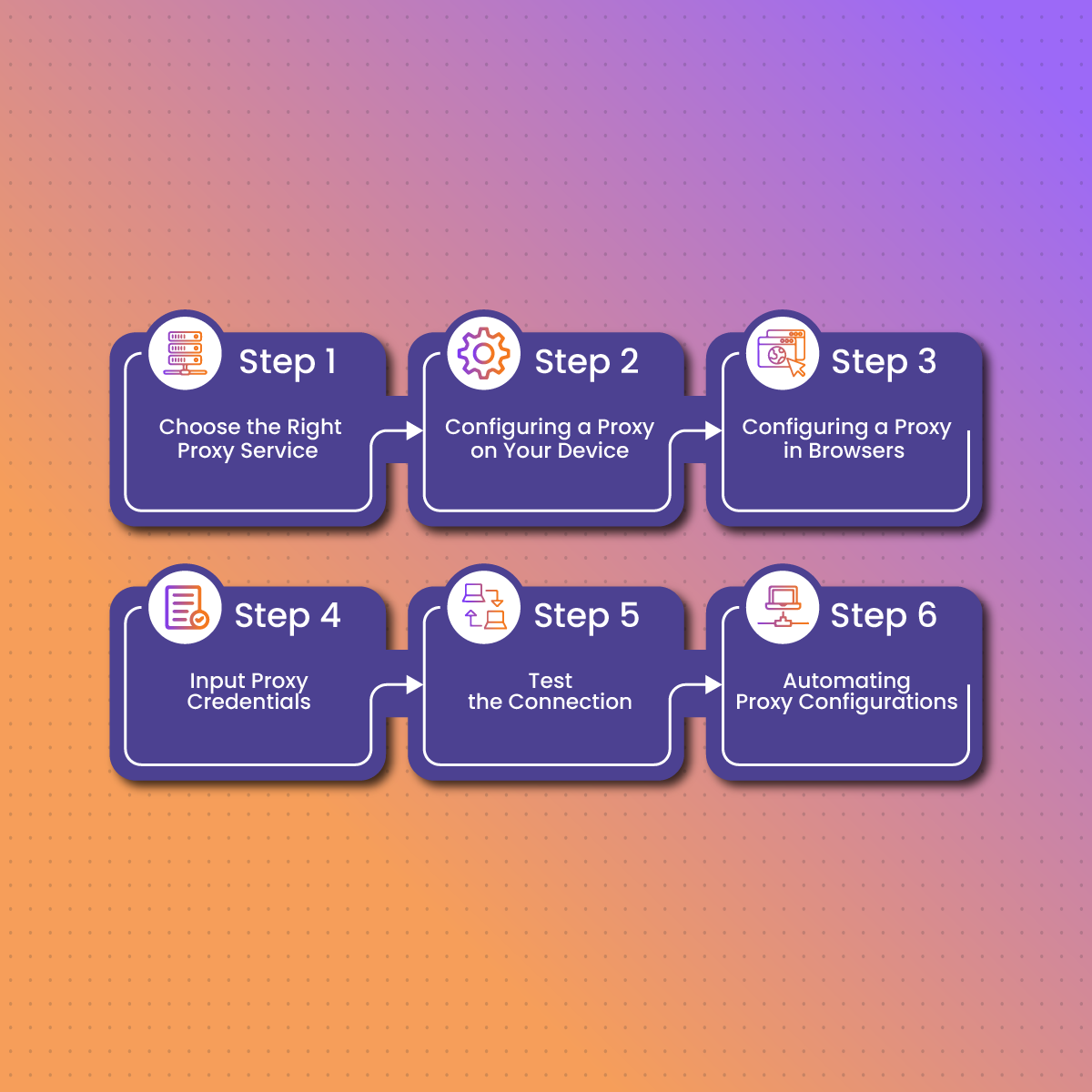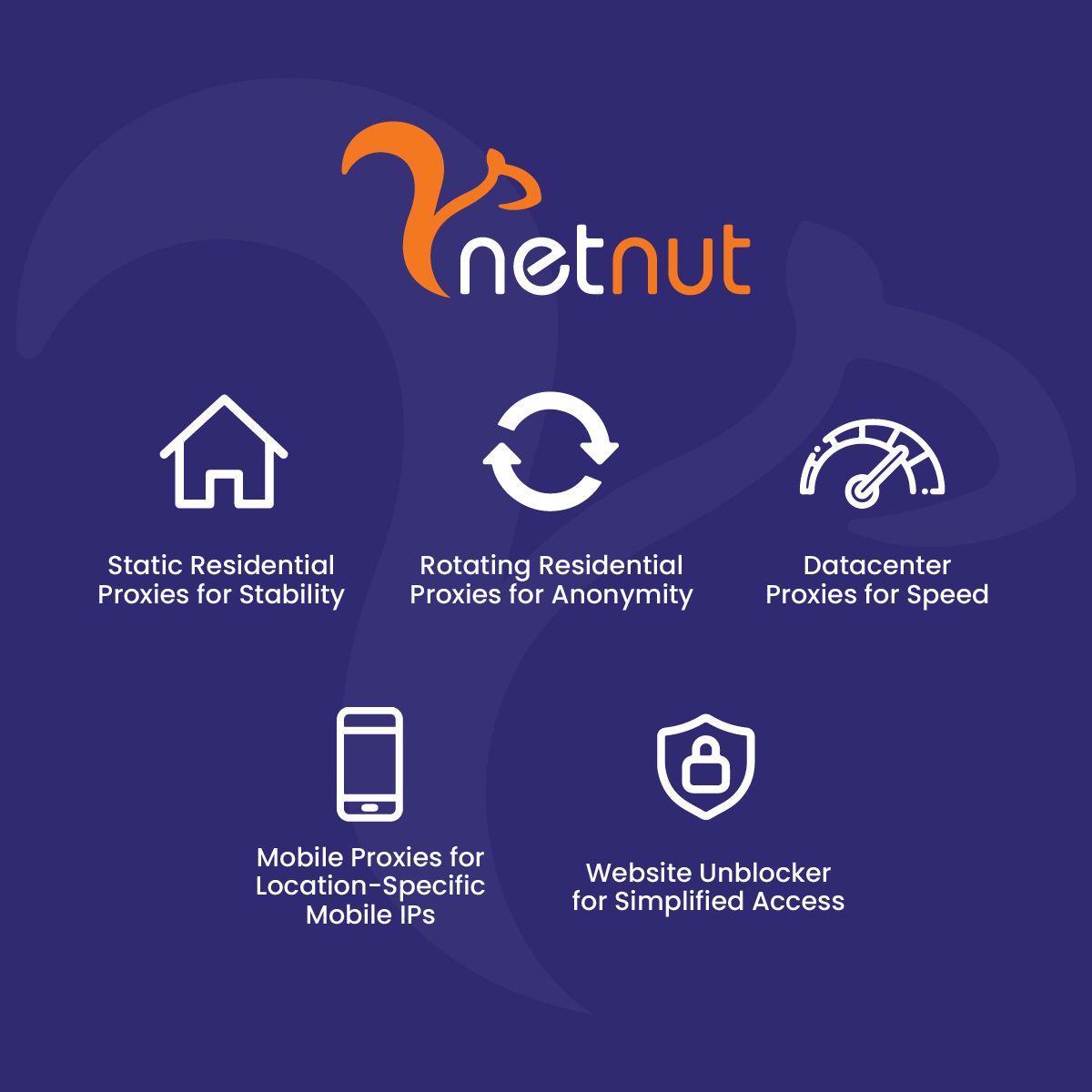Connecting to a specific IP address using a proxy server is an essential tool for anyone needing precise control over their internet connections. Whether it’s for bypassing restrictions, accessing geo-specific content, or ensuring a stable connection for online activities, specific IP proxies provide the reliability and flexibility users need.
A proxy server acts as an intermediary between your device and the internet, routing your traffic through a designated IP address. This makes it possible to appear as though you’re browsing from a specific location, even if you’re halfway around the world. By using services like NetNut’s Static Residential Proxies, you can securely connect to a single IP address and enjoy uninterrupted access to the content or services you need.
In this guide, we’ll explore what specific IP proxies are, why they’re useful, and how to connect to a specific IP address with step-by-step instructions. We’ll also highlight best practices and the benefits of using NetNut’s tailored proxy solutions for all your specific IP needs.
What is a Specific IP Proxy?
A specific IP proxy is a type of proxy service that allows you to route your internet traffic through a designated IP address. This enables you to appear as though you are browsing from a specific location or device, providing greater control over your online presence. Unlike dynamic proxies, which frequently change the IP address during a session, specific IP proxies maintain a fixed IP for consistent and predictable connections.
How Specific IP Proxies Work
Specific IP proxies operate as intermediaries between your device and the internet:
- You configure your device or application to use the proxy server.
- Your internet requests are routed through the proxy server, which uses the assigned IP address.
- The target website or service sees the proxy’s IP instead of your real one.
This setup is particularly beneficial for accessing restricted content, managing accounts, or ensuring stable connections for tasks like data scraping or digital marketing campaigns.
Types of Specific IP Proxies
- Residential Proxies
- Assigned from real residential locations.
- Ideal for accessing region-specific content and bypassing restrictions.
- Example: NetNut’s Static Residential Proxies.
- Datacenter Proxies
- High-speed proxies hosted in data centers.
- Suitable for tasks requiring speed and scalability.
- Example: NetNut’s Datacenter Proxies.
- Mobile Proxies
- Use IPs associated with mobile carriers.
- Best for simulating mobile users in specific regions.
- Example: NetNut’s Mobile Proxies.
Why Would You Want to Connect to a Specific IP Address?
Connecting to a specific IP address through a proxy server offers numerous advantages for personal, professional, and business use cases. Here are some of the most common reasons why users opt for specific IP proxies.
1. Geo-Targeting
Specific IP proxies allow you to connect from a location of your choice, making them essential for:
- Accessing Region-Specific Content: Bypass geographic restrictions to view websites, streaming services, or online platforms available only in certain countries.
- Localized Testing: Test website functionality and performance for users in specific regions.
- E-commerce Optimization: Simulate local shoppers to access regional deals, product availability, or pricing.
NetNut’s Residential Proxies provide real-user IP addresses, making them ideal for accurate geo-targeting.
2. Consistency
In scenarios where a stable online identity is required, specific IP proxies offer unmatched reliability:
- Account Management: Maintain a consistent IP address to manage multiple accounts on platforms that flag unusual activity.
- Long-Term Connections: Ensure uninterrupted access to platforms requiring a stable connection.
3. Bypassing Restrictions
Proxies enable users to bypass ISP, government, or network-level blocks:
- Overcome ISP Censorship: Access sites or services restricted by your internet service provider.
- Avoid Organizational Blocks: Use proxies to bypass workplace or school firewalls.
NetNut’s Website Unblocker is specifically designed to help users bypass such restrictions with ease.
4. Data Scraping
Specific IP proxies are invaluable for gathering accurate and region-specific data:
- Market Research: Collect localized data from competitors or markets without revealing your real identity.
- Web Automation: Use specific IP proxies to simulate different users for automation tasks.
5. Enhanced Privacy
Specific IP proxies protect your real IP address from being exposed, ensuring your online activities remain private. They’re especially useful for activities like:
- Secure browsing.
- Protecting personal data from tracking and surveillance.
How to Connect to a Specific IP Address With a Proxy Server
Connecting to a specific IP address using a proxy server is a straightforward process. This section provides step-by-step instructions for setting up a proxy on different devices and browsers, ensuring a smooth connection to your designated IP address.
1. Choose the Right Proxy Service
Before setting up a connection, select a reliable proxy service. Here’s why NetNut’s offerings stand out:
- Static Residential Proxies for stable, consistent IP addresses.
- Mobile Proxies for region-specific mobile connections.
- Datacenter Proxies for high-speed and scalable tasks.
2. Configuring a Proxy on Your Device
On Windows
- Open the Settings menu.
- Navigate to Network & Internet > Proxy.
- Under the “Manual proxy setup” section, toggle on Use a Proxy Server.
- Enter the proxy’s IP address and port provided by your proxy service.
- Click Save to apply the settings.
On macOS
- Open System Preferences and go to Network.
- Select your active connection and click Advanced.
- Navigate to the Proxies tab.
- Check the appropriate proxy protocol (e.g., HTTP, HTTPS).
- Enter the proxy server’s IP address and port.
- Save your settings and reconnect.
3. Configuring a Proxy in Browsers
Google Chrome
- Open Chrome and navigate to Settings > System > Open Proxy Settings.
- Follow the device-specific proxy setup instructions for your operating system.
Mozilla Firefox
- Go to Settings > General > Network Settings > Settings.
- Choose Manual Proxy Configuration and input the proxy IP and port.
- Save your changes and restart the browser.
4. Input Proxy Credentials
If your proxy service requires authentication, enter the username and password provided by the service during setup. Many premium proxies, like NetNut’s Static Residential Proxies, use credentials for added security.
5. Test the Connection
To confirm the proxy is working:
- Visit a site like WhatIsMyIP or IPinfo to check your IP address.
- Ensure it matches the specific IP address provided by the proxy service.
6. Automating Proxy Configurations
For advanced users, integrating proxies into applications via API or custom scripts can streamline the connection process. NetNut’s proxies come with robust documentation for seamless integration.
Best Practices for Using Specific IP Proxies
Using specific IP proxies effectively requires attention to both security and performance. By following these best practices, you can ensure stable connections and maintain privacy while accessing your desired content or services.
1. Use a Trusted Proxy Provider
Choosing a reliable proxy service is critical to ensuring security and consistent performance. Avoid free proxies, as they often lack proper encryption and may expose your data to risks. Instead, opt for trusted providers like:
- Residential Proxies for secure, real-user IPs.
- Datacenter Proxies for high-speed connections.
- Mobile Proxies for mobile-specific IP requirements.
2. Regularly Rotate Your IP Address
If your task requires dynamic connections or spans extended periods, consider using rotating proxies. Services like NetNut’s Rotating Residential Proxies dynamically switch IPs during your session to prevent detection and maintain anonymity.
3. Monitor Proxy Performance
Keep an eye on your proxy’s performance to ensure it meets your needs:
- Use tools like Ping or Traceroute to test latency and connection stability.
- Monitor for signs of slow speeds or frequent disconnections, which may indicate the need for a more robust proxy service.
4. Avoid Overloading Your Proxy
For tasks requiring significant bandwidth, such as data scraping or video streaming, ensure your proxy can handle the load. NetNut’s Datacenter Proxies are optimized for scalability, making them ideal for resource-intensive applications.
5. Protect Your Credentials
If your proxy setup requires authentication, safeguard your username and password. Use secure storage methods and avoid sharing credentials unnecessarily.
6. Ensure Compatibility With Your Application
Before selecting a proxy, confirm it’s compatible with the tools or platforms you plan to use. NetNut’s proxies integrate seamlessly with a variety of applications, offering robust API support for custom configurations.
7. Stay Updated on Proxy Best Practices
Proxy technology evolves constantly. Keep informed about the latest trends and tools to ensure optimal performance and security. NetNut’s Website Unblocker is an excellent resource for staying ahead of network restrictions.
NetNut Proxy Solutions for Specific IP Needs
NetNut offers a comprehensive suite of proxy solutions tailored to users who require specific IP addresses for various tasks. Whether your priority is consistency, speed, or privacy, NetNut’s proxies are designed to deliver reliable and secure connections for a seamless online experience.
1. Static Residential Proxies for Stability
NetNut’s Static Residential Proxies provide dedicated IPs that remain constant, making them perfect for activities that require stable and predictable connections.
Key Features:
- Reliable Connections: No IP rotation, ensuring consistency for tasks like account management and localized testing.
- Global Coverage: Access IPs from a wide range of locations worldwide.
- Secure Access: Avoid detection and bans with authentic residential IPs.
2. Rotating Residential Proxies for Anonymity
For users who need to avoid detection or handle tasks requiring dynamic IP changes, NetNut’s Rotating Residential Proxies are the ideal choice.
Benefits:
- Automatic IP Rotation: Ensures anonymity by periodically changing your IP address.
- Reduced Detection Risks: Perfect for data scraping, web automation, and bypassing strict anti-bot measures.
- Seamless Integration: Easily configurable with custom applications and tools.
3. Datacenter Proxies for Speed
When speed is a priority, NetNut’s Datacenter Proxies offer high-performance solutions. These proxies are designed for resource-intensive tasks like large-scale data collection or media streaming.
Advantages:
- Unmatched Speeds: Optimized for fast and efficient connections.
- Scalability: Ideal for handling high-volume requests and workloads.
- Cost-Effective: Provides excellent performance without compromising affordability.
4. Mobile Proxies for Location-Specific Mobile IPs
NetNut’s Mobile Proxies use IPs from mobile carriers, making them perfect for mobile-specific testing and applications.
Use Cases:
- Simulating Mobile Traffic: Test websites and apps for mobile users in specific regions.
- Enhanced Privacy: Protect your identity with real mobile IPs.
5. Website Unblocker for Simplified Access
NetNut’s Website Unblocker is a dedicated solution for bypassing restrictions and accessing blocked content, such as region-locked websites or services.
Why Choose Website Unblocker?:
- Automatic Configuration: No manual proxy setup required.
- High Success Rate: Reliable access to sites with strict geo-blocking or anti-bot measures.
- Comprehensive Security: Ensures data privacy and encryption.
NetNut’s proxy solutions cater to diverse needs, from individuals seeking stable connections to businesses managing large-scale operations. With industry-leading reliability and performance, these proxies are the perfect choice for anyone needing specific IP access.
FAQs About Specific IP Proxies
To help users better understand specific IP proxies and their applications, here are answers to frequently asked questions.
1. What’s the Difference Between a Static and Rotating Proxy?
- Static Proxy: Uses a fixed IP address for consistent connections, ideal for account management or tasks requiring a stable online identity. NetNut’s Static Residential Proxies provide reliable and secure static IPs.
- Rotating Proxy: Changes the IP address periodically during a session, making it suitable for anonymity and tasks like web scraping. NetNut’s Rotating Residential Proxies dynamically rotate IPs to avoid detection.
2. How Do I Ensure My Proxy Connection is Secure?
To maintain a secure connection:
- Use proxies from trusted providers like NetNut.
- Regularly update your proxy credentials and avoid sharing them.
- Combine proxies with a VPN for added encryption.
NetNut’s Website Unblocker simplifies secure access to restricted content with minimal setup.
3. Can I Use Specific IP Proxies for Web Scraping?
Yes, specific IP proxies are excellent for web scraping tasks that require stability or geo-targeted data collection. For large-scale operations, pairing static IP proxies with rotating proxies ensures flexibility and reduces the risk of bans. NetNut’s Residential Proxies are optimized for both scenarios.
4. Are Specific IP Proxies Better Than Dynamic Proxies for Geo-Restricted Content?
It depends on the use case:
- Specific IP Proxies: Offer consistency and are ideal for accessing region-specific services repeatedly.
- Dynamic Proxies: Provide flexibility and reduce tracking for one-time or high-volume tasks.
For accessing geo-restricted content seamlessly, NetNut’s Static Residential Proxies deliver unmatched reliability.
5. How Does NetNut Optimize Specific IP Connections?
NetNut provides advanced features to enhance the proxy experience:
- Global Coverage: Access IPs from real users in multiple locations.
- Scalability: Handle tasks ranging from personal browsing to enterprise-level operations.
- Seamless Integration: Easy setup with browsers, devices, and applications.









